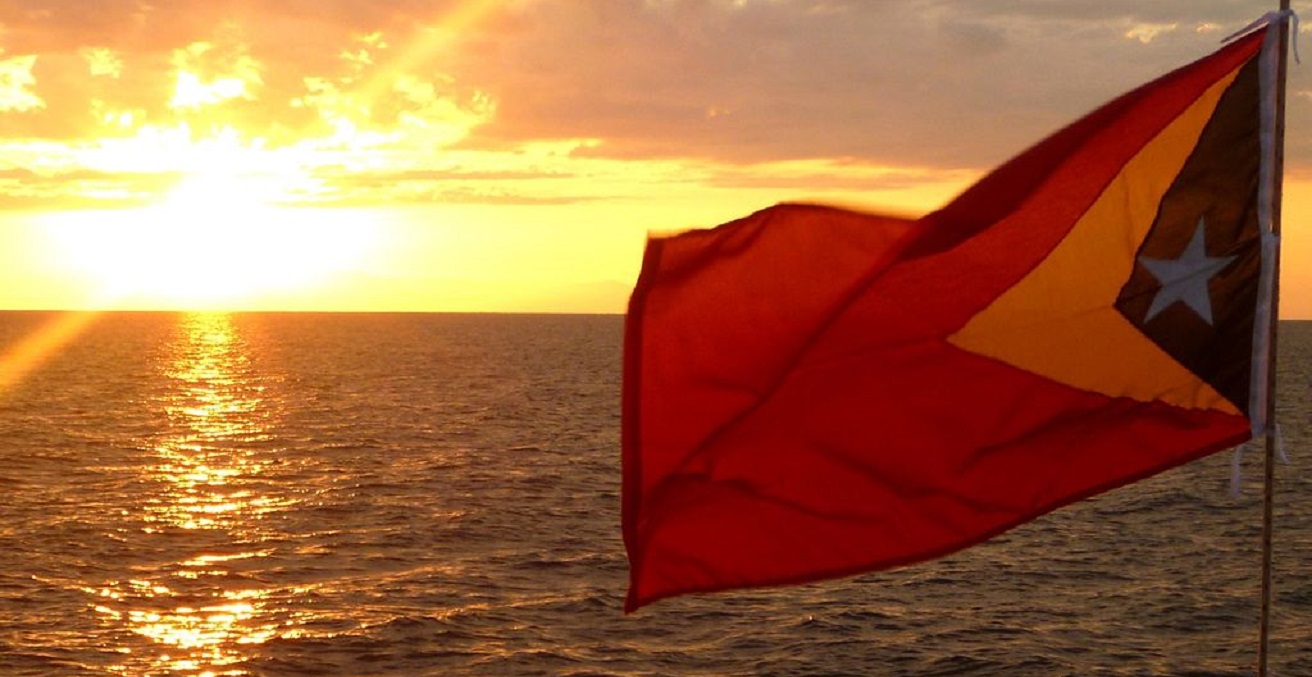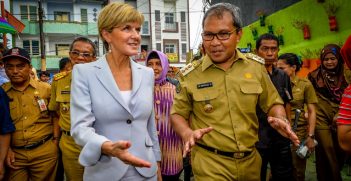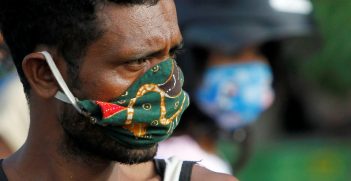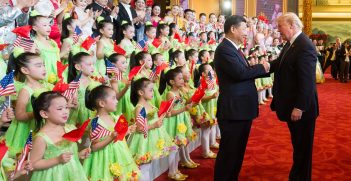A New Sunrise for Australia and Timor-Leste Relations?

Amid political instability and economic imperatives, a Boxing Day media release provided rare hints on the progress of negotiations between Australia and Timor Leste over the disputed, resource-rich Timor Sea.
One of the striking aspects of the recently released Australian Foreign Policy White Paper was its emphasis on the economic, security and development challenges facing states in the immediate region, including Papua New Guinea, the Pacific Island countries and Timor-Leste.
The seventh chapter, ‘A Shared Agenda for Security and Prosperity’, positioned Australia as having a special role as a major partner and “enabler of opportunity” for these states. The Foreign Policy White Paper predicts that the Pacific and Timor-Leste region will experience an infrastructure shortfall of $46 billion. Reading between the lines, it is clear that the spectre of competition over influence in the neighbourhood is a strategic concern for Australia, and one that recently gained prominence with controversial accusations by the Minister for International Development and the Pacific, Concetta Fierrevanti-Wells, that China is funding roads to nowhere.
The acute development and governance challenges are presented as a potential threat to the security of Australia. Like previous declaratory policies, including successive defence white papers, the interest in stability and prosperity in the region is linked to Australia’s capacity to defend its northern approaches, secure borders and protect its exclusive economic zone. Hence, the stability and economic progress of neighbouring states, such as Timor-Leste, is viewed as fundamentally important to Australia.
The paper also devotes a sub-chapter to relations with Timor-Leste, beginning with the recent agreement on maritime boundary delimitation as a “new chapter in the bilateral relationship…[providing] a new foundation for the development of the Greater Sunrise gas field in the Timor Sea, and the sharing of resulting revenue”. Australia continues to be directly engaged in trilateral negotiations with Timor-Leste and the commercial venture partners that will determine the short- and mid-term economic viability of the Timorese state, one of the most oil-dependent in the world.
The Timor Sea negotiations
It has been over a year since it was announced that Australia and Timor-Leste had decided to scrap the 2006 Treaty on Certain Maritime Arrangements in the Timor Sea (CMATS) as part of United Nations Compulsory Conciliation (UNCC) processes. While providing for a revenue-sharing arrangement of the Greater Sunrise gas fields, the CMATS negotiations set aside two key sticking points: the delimitation of maritime boundaries and the development of Greater Sunrise.
In August 2017, it was announced that a deal had been struck on maritime delimitation and revenue-sharing arrangements. This reflected a significant shift in Australia’s Timor Sea policy.
The dominant narrative used by Australia to explain this shift pertains to its support of the ‘rules based order’ and the role of the UN Covenant on the Laws of the Sea (UNCLOS) in peacefully resolving maritime disputes. Australia’s Minister for Foreign Affairs, Julie Bishop, for instance, had repeatedly called upon China to adhere to the maritime rules following the Permanent Court of Arbitration’s ruling on the South China Sea dispute between the Philippines and China in 2016. Therefore, the success of Timor-Leste in persuading Australia to delimit boundaries needs to be understood in light of broader concerns about a rising China and potential challenges to the existing maritime legal order.
This is the first time UNCC process have been invoked. The roles of the structured conciliation processes and the panel of conciliators should be examined closely after its conclusion, as these seem particularly significant in assisting the parties to reach an agreement on boundaries. The success is particularly surprising given the prior emphasis of the Australian foreign minister on the non-binding nature of the process, and its legal efforts to prevent the conciliation. Importantly, though, Australia’s ultimate engagement with the conciliation is compatible with its longstanding commitment to negotiation rather than the use of formal legal arbitration in determining maritime boundaries.
So, does Australia’s changed approach to maritime boundaries in the Timor Sea reflect its commitments declared in the white paper? This remains a complex question to address, given that trilateral negotiations between Timor-Leste, Australia and the commercial partners over the development of the lucrative Greater Sunrise gas field are ongoing and subject to very strict confidentiality clauses. Details of the boundary have yet to be publicly released, but it is evident from the available information that Timor-Leste had to compromise on its claims to the entire Greater Sunrise gas field.
While much attention is placed on the maritime boundaries, it is the disagreement over development that has been most problematic. After signing the CMATS, Timorese leaders advocated the creation of a pipeline to carry the gas to an onshore processing plant on the south coast of Timor-Leste. This was deemed unviable by the commercial venture partners, headed by Woodside, a position supported by Australia.
A joint press release that quietly appeared on Boxing Day 2017 provides some insights into the status of these negotiations over development. In conciliation meetings in December 2018, the states agreed to a timeline for signing the treaty text delimiting maritime boundaries and revenue sharing arrangements, aiming for early March 2018.
The most revealing statement highlights the continued disagreements between Timor-Leste and the venture partners: “[h]aving considered the progress made in the trilateral engagement to date, the governments agreed that the Commission would engage directly with them and with the joint venture to resolve certain outstanding matters and that a decision on the development concept would be taken by 1 March 2018’.
At least one close observer has described this timeline as “wishful thinking”. One of the consistent features of this element of the dispute is the deferral by Australia to the venture partners about what the best commercial option entails. A solution will depend upon Timor-Leste and the venture partners agreeing, with Australia taking a background role. An agreement will depend upon both sides compromising, yet the battlefield is uneven. One is a state that urgently requires resolution on Greater Sunrise for economic viability, and the other is a commercial enterprise that has willingly shelved the project in the past.
It is also unclear how Timor-Leste’s political instability might affect the negotiations. Timor-Leste’s new minority government has been unable to pass its program through parliament. At time of writing, it appears highly likely that new elections will be called. So far, the political instability has not had much impact, but if new elections are scheduled for around March this may also prove problematic for the development timeline.
Dr Rebecca Strating is a lecturer of Politics at La Trobe University, Melbourne, Australia.
This article is published under a Creative Commons Licence and may be republished with attribution.





